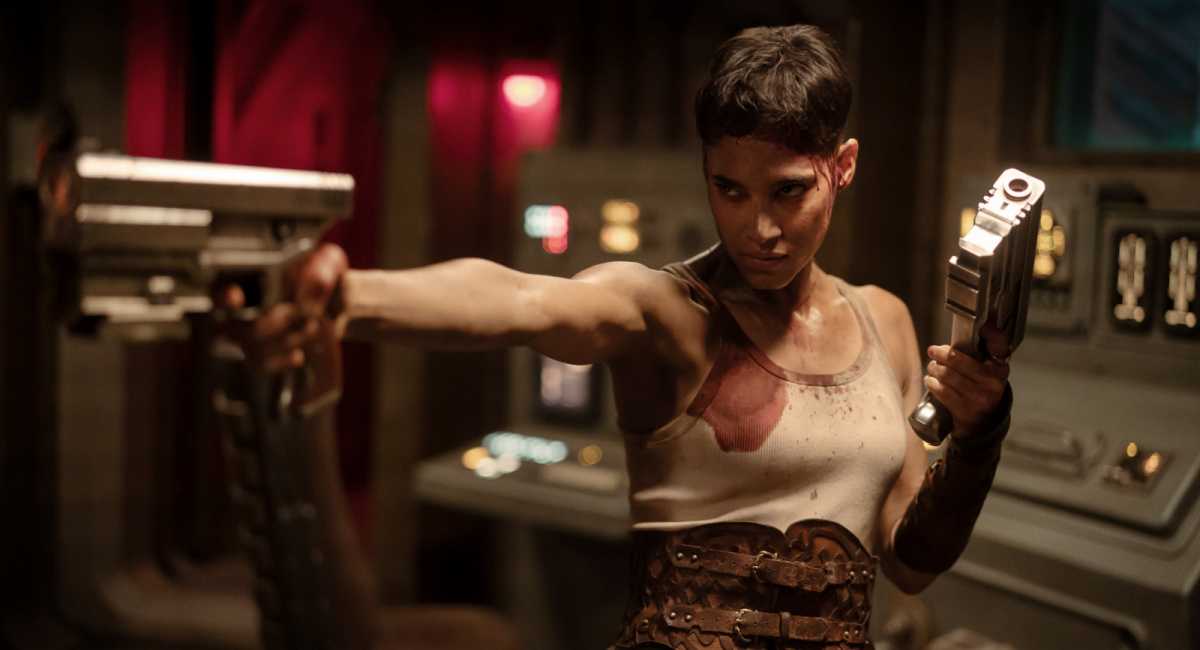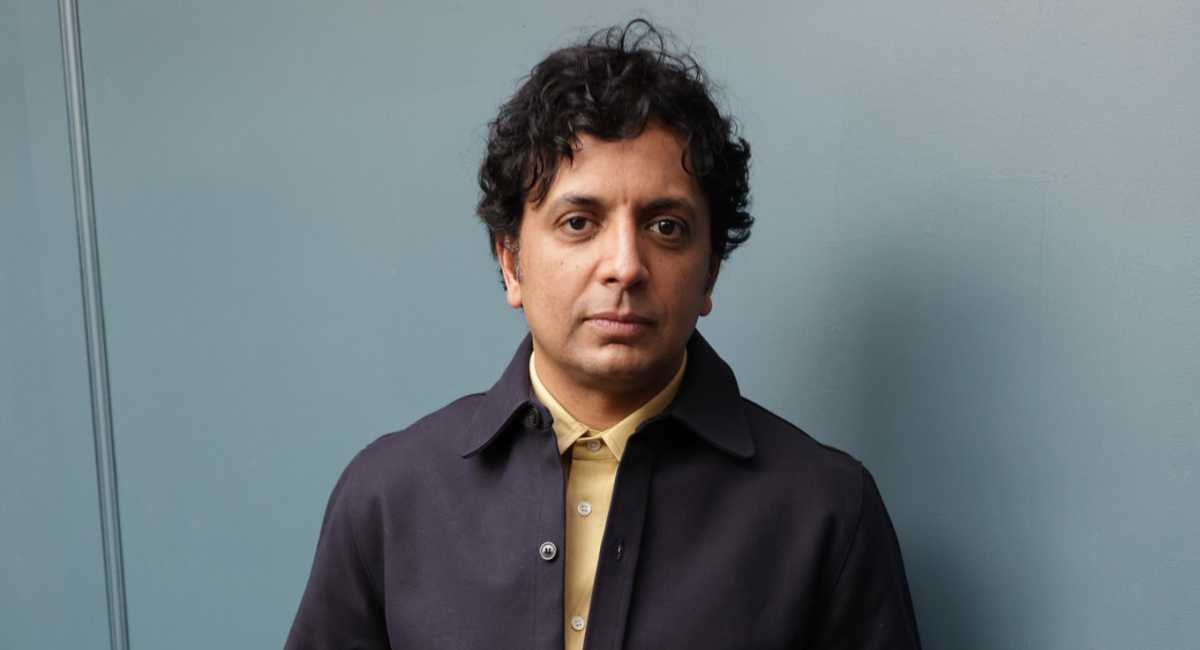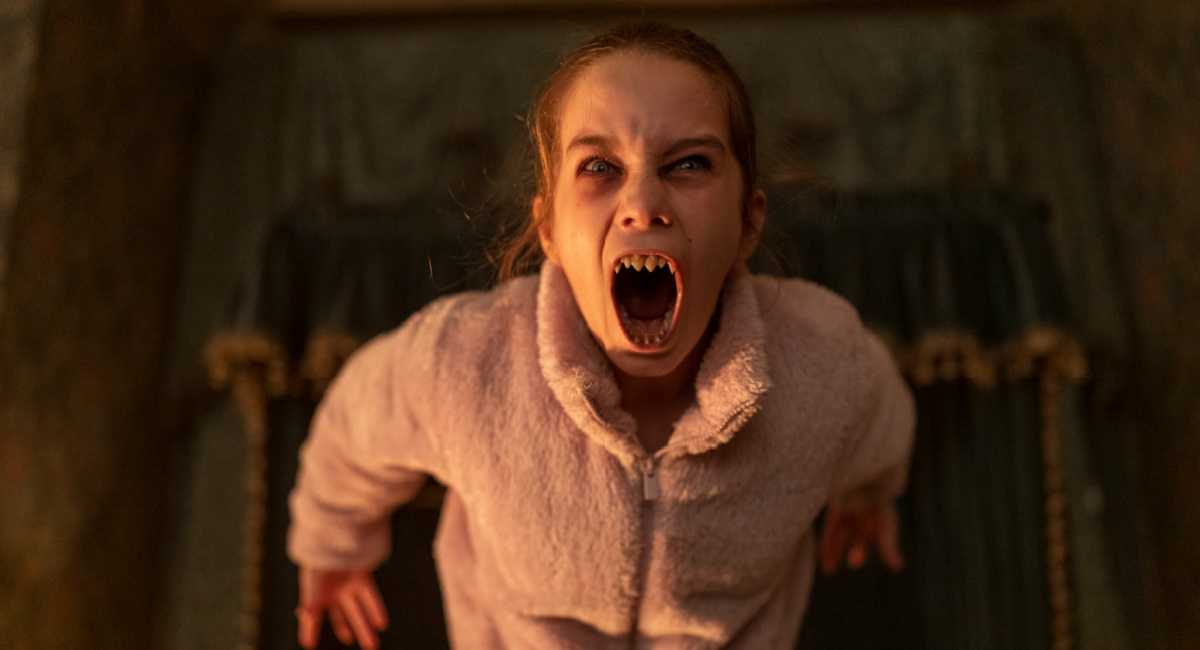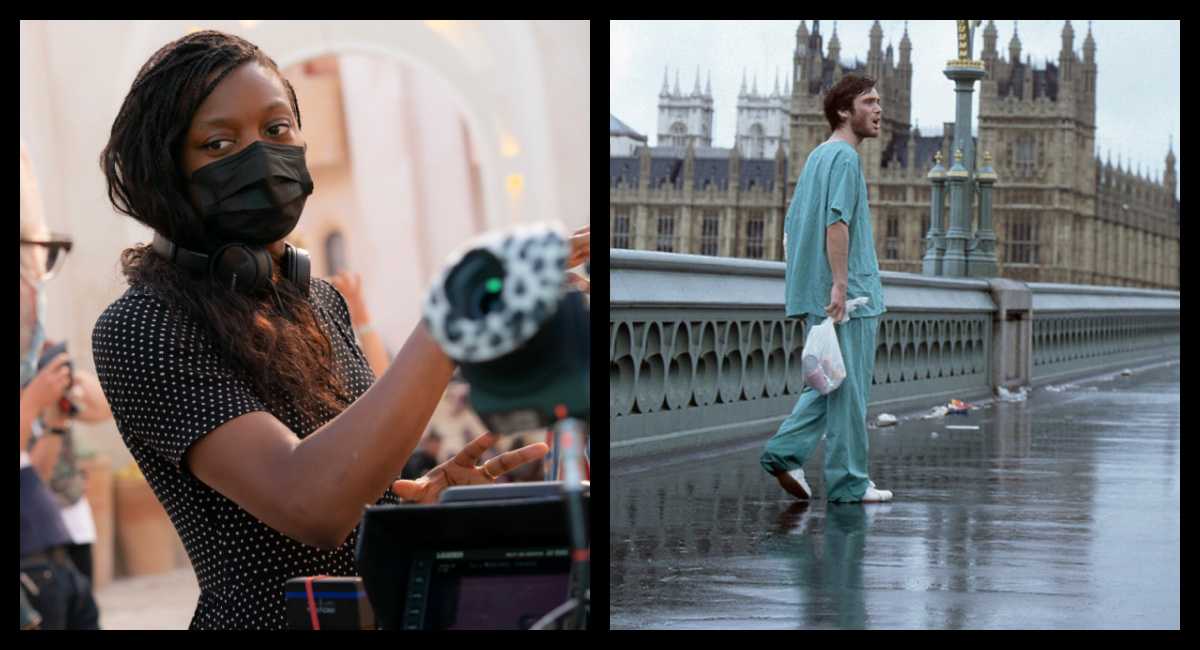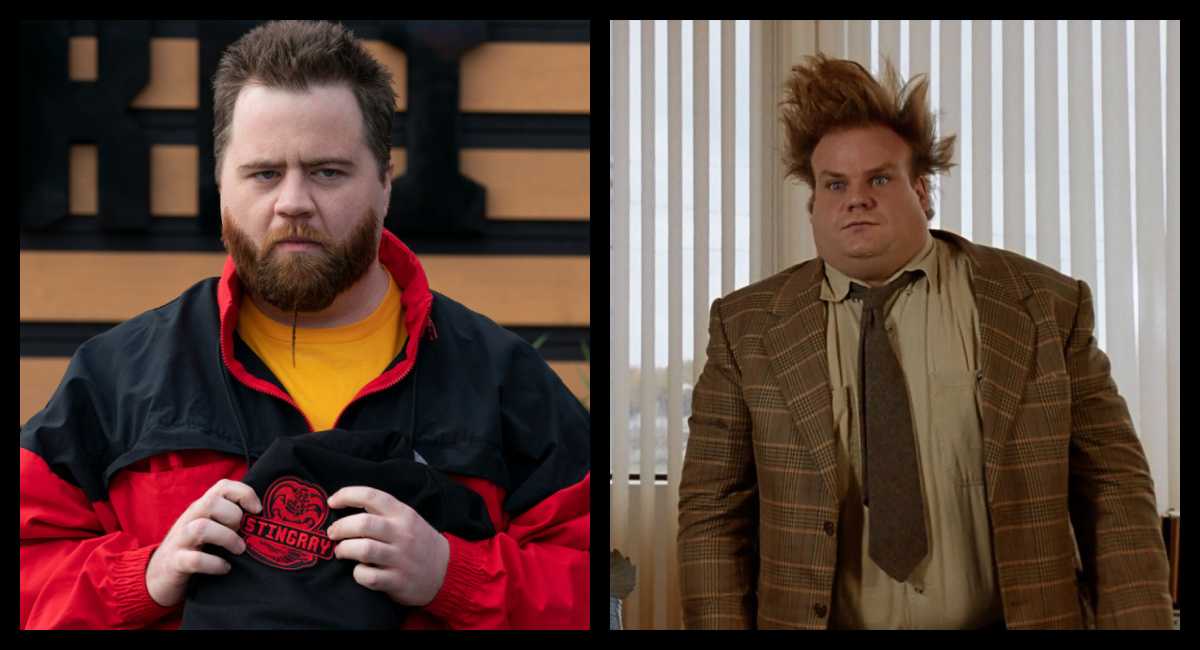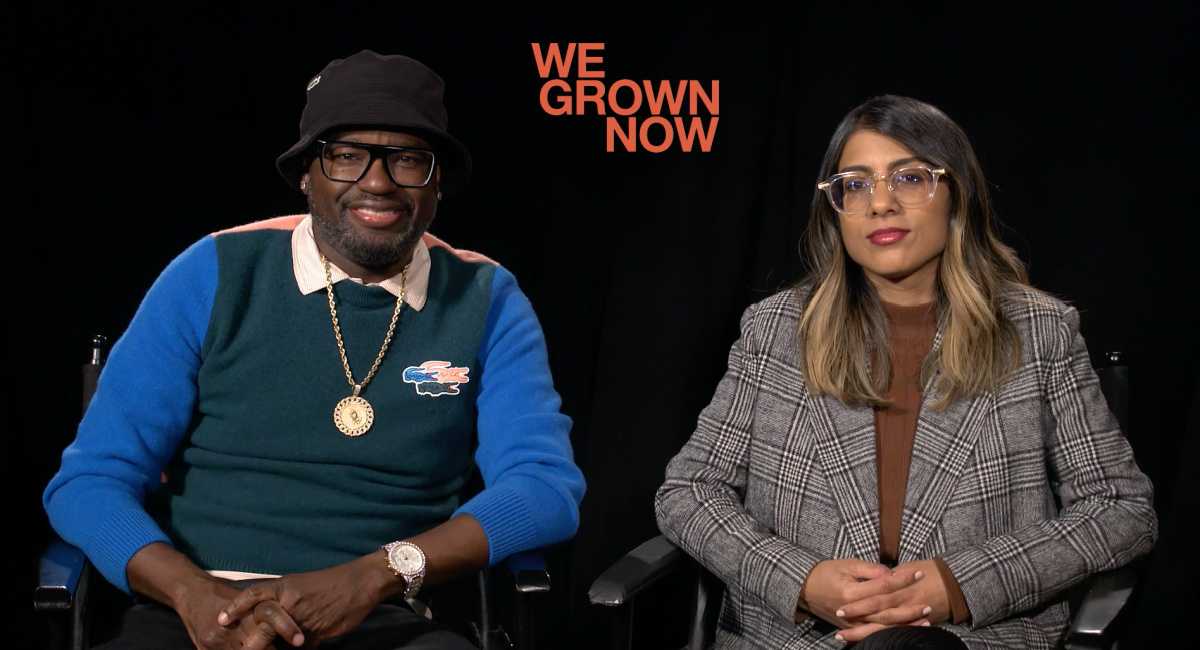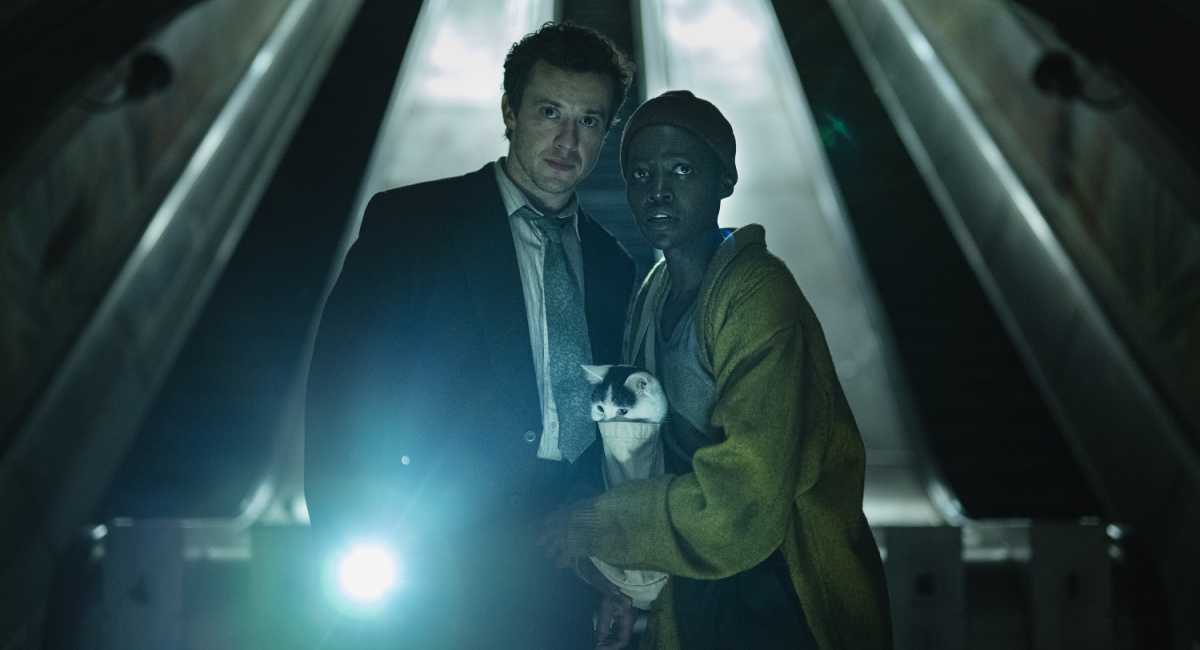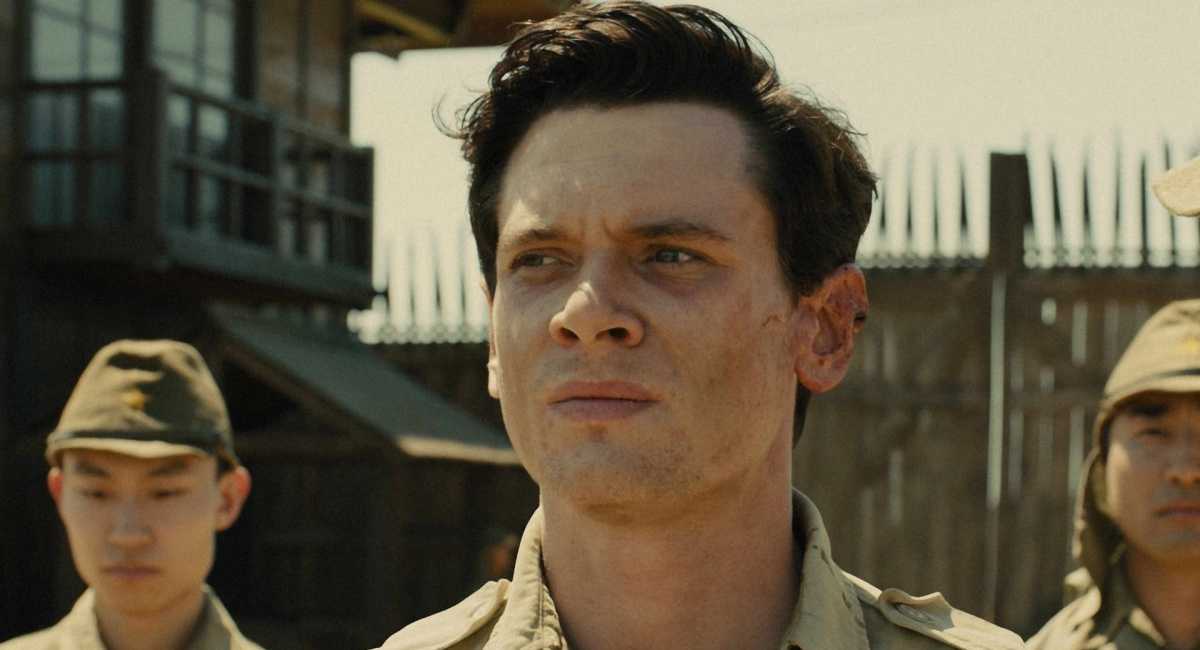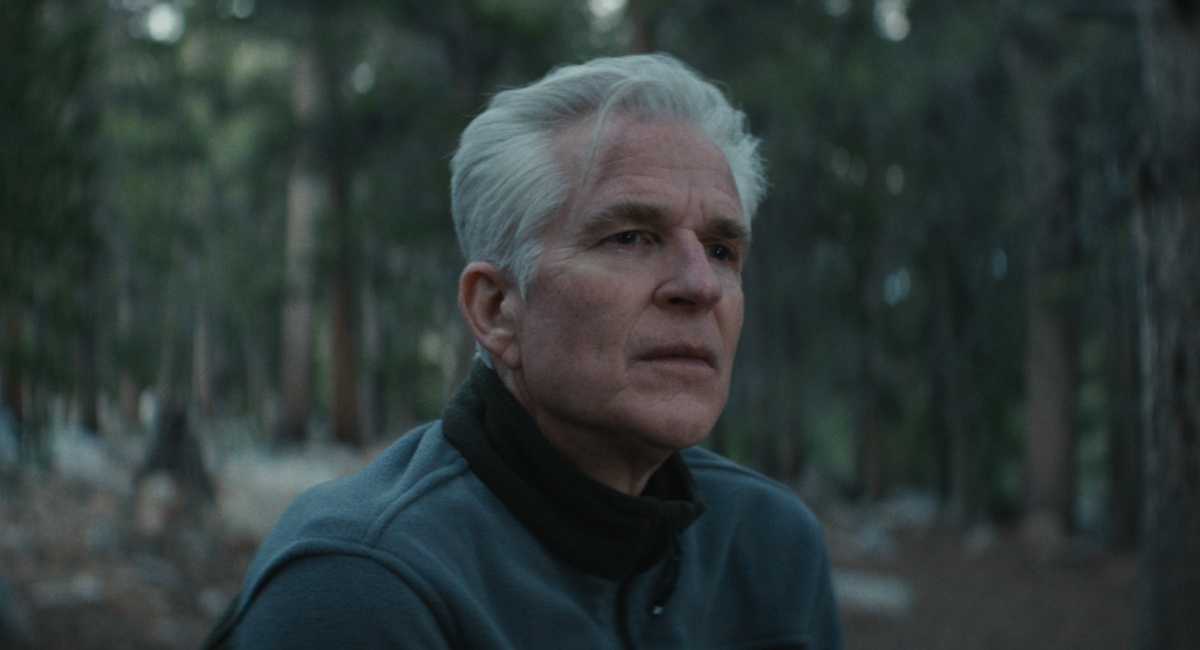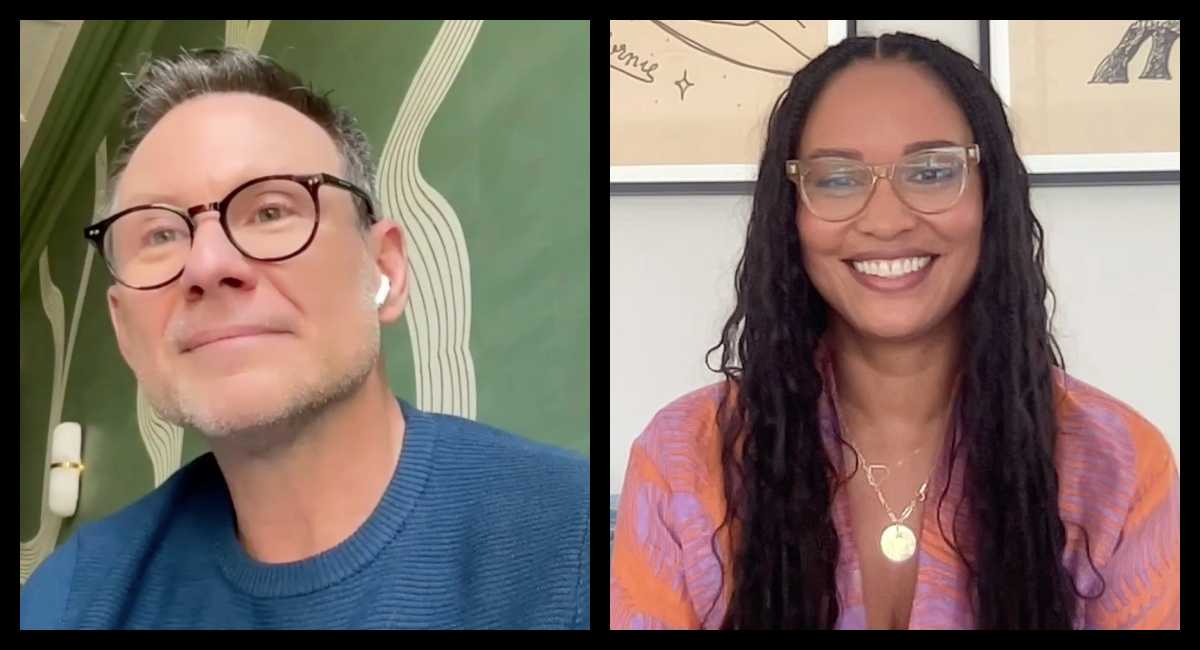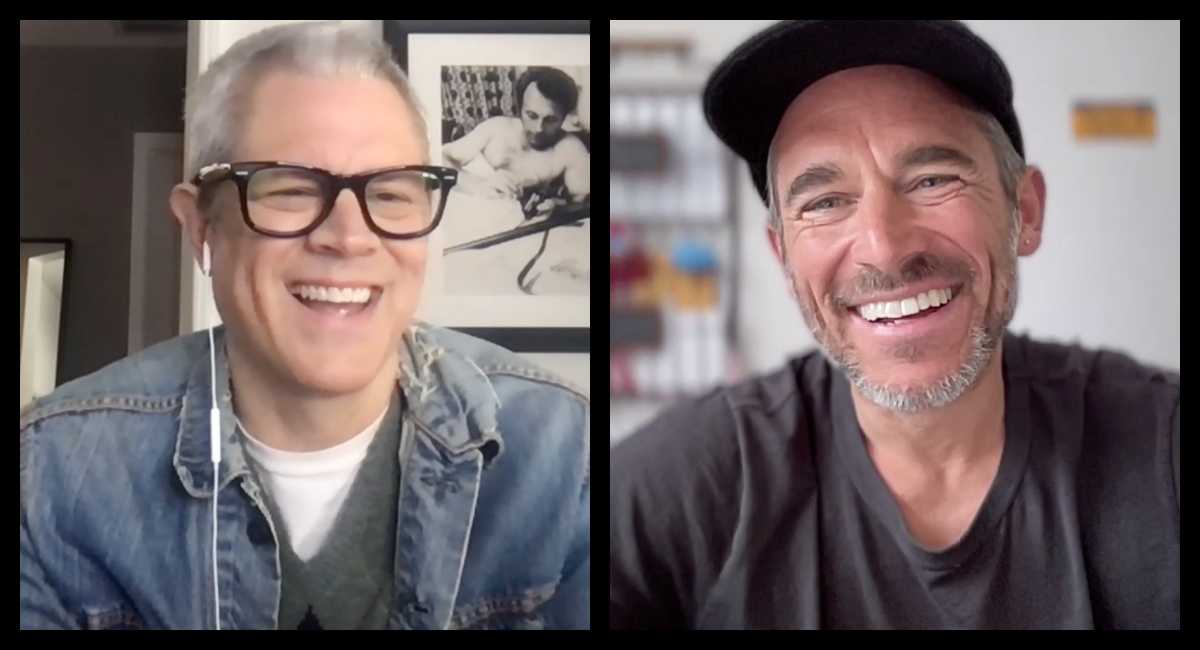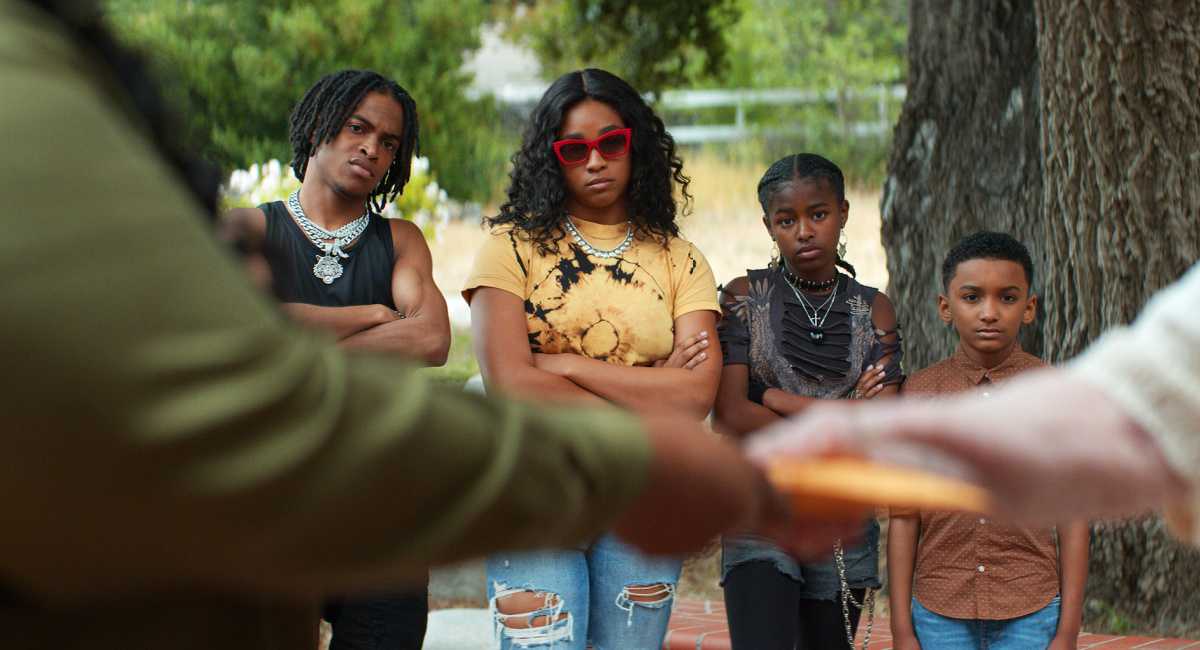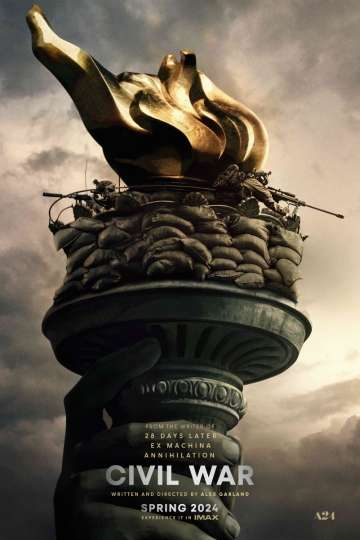Samira Wiley Wants 'Orange Is the New Black' Fans to Put That Anger to Good Use
NOTE: If your binge of "Orange Is the New Black's" phenomenal fourth season isn't complete, we suggest -- no, insist -- that you log into your Netflix account and see it through to the end before diving in here.
Again, SPOILERS AHEAD.
Samira Wiley understands that you're angry about the whole Poussey storyline that went down on "Orange Is the New Black" Season 4. In fact, she's happy that you are.
Not only is she pleased that viewers felt something so strong and painful when they watched Litchfield inmate Poussey Washington's tragic fate -- and here we are with the big SPOILER -- as she was accidentally killed by an in-over-his-head guard, she also knows fans of the show can put that anger to good use when faced with the reality that this sort of thing is happening to real people in the real world far, far too frequently.
But we'll let Wiley tell you more about that -- and everything else about that heartbreaking exit that was nevertheless great television, the impact the show's had on her, and just how soon you'll be seeing her on your TV screen again.
Moviefone: I was not happy to see you go, but my goodness, the material they gave you to go out on was amazing. You have to have all kinds of feelings about that.
Samira Wiley: Oh man, thank you so, so, so much. I've had a long time to process and a long time knowing this huge secret that I've had for a long time. To know that it has come out and it has come out so well, I'm extremely proud of me and my castmates and the rest of the people involved with the show. Couldn't be happier with the way it turned out.How did that first conversation go, when you were given the news? And did you know that it was going to have, when the time finally came, it wasn't just going to have significance for Poussey, it was going to have this even bigger resonance on a social level?
I had no idea! Honestly, like in the beginning, all I knew was that I was going to die this season. And I didn't know why, I didn't know how, I didn't know anything. I remember being really shocked, a little confused, and of course with time came more understanding.
I knew in the beginning that it had something vaguely to do with Black Lives Matter, so that made me feel better that it was having to do with a cause and bringing social consciousness, awareness to something that is important that is going on in our world right now. But I didn't really know at all the details until the script came out.
How did you feel about it simply as the exit for your character? What did you think her story ultimately meant once you saw how it came to an end?
Honestly, I think Poussey's life that we have seen in these last four years of this show, she's really just become this amazing, amazing role model for people, and for young girls. It's interesting because she exists in prison, and what we think about that immediately is that a prisoner is "bad," but how much good we have learned, and how much good we gleaned from Poussey?
For her story to have this tragic end, it's horrible. It is completely a tragedy. And there are people out there who are so mad and so angry about it. A lot of them are taking their frustrations out on the show itself, saying, 'How could this happen? How could you do this to Poussey? This is horrible!" I'm happy that people are mad. I want people to be angry, but I want their anger to me more directed at the world, that this is someone's actual true story.
It mirrors Mike Brown and Eric Garner's death, and that is something that we cannot look away from. Especially now that people are being so affected when it's on a TV show, and I want people to remember that this is actually happening in real life, and let's be mad at that.I'll tell you, it felt like such a gut punch as I was watching it happen, but also, throughout her whole story, to my mind, prison had totally ruined her life in ways that were more profound than other people's. Prison was really, really destroying her in many ways, and this made a tragic kind of sense.
Yeah. I mean, prison is supposed to be there to, I don't know, reform you. But it's turned her into an alcoholic. It ended her life. She ended up there for a small drug offense. And this happens every day. People are having their lives, even if they die in prison or not, if she was still alive, she still had her best years taken away from her for something, a crime that I do not think matched her sentence.
Still, we got to see her have a little taste of love and happiness in the lead up to her exit. What did that mean for you to get to play those more serene and centered scenes with her?
That was great. I'd been waiting, honestly, Scott, for that since probably the very first day of being able to bring Poussey to life. We see her in Season 1, and she has a thing for her best friend, Taystee, and it's never reciprocated with Taystee, and she never receives any love for three whole seasons.
So to finally, finally, finally, the thing that I've been wanting forever, to get, and tragically we see, and it makes it hurt so much more because she finally gets the thing we've been wanting her to get for so long. And then, it's all for nothing because she's gone.Let's talk about the fact that they gave you that additional final episode flashback to really show that one special evening that she had, one of those unique memories in the world that she had. And to close out on that, and on that specific image of Poussey -- and of you -- what did that mean to get that opportunity?
Well, in the beginning, when I was first told about the fate of my character, all I knew was that I was leaving in Episode 12. I had no idea I was even going to be in Episode 13 at all. So number one, just knowing that I was going to be in it, I was like, "Oh, that's great." But then, getting the material and seeing what the story that they were trying to tell, it's again, against the grain. It's against what you think what actually happened. It's not some sad story. It's not about something horrible that happened to her. It's just this awesome best-night-of-my-life night backstory.
Especially the last scene that you mentioned of her looking into the camera, that was, well, one of the strangest things I've ever done on "Orange" because no one ever looks right into camera. And I remember we were on the set, and it's not in the script. It's not in the script at all that I look in the camera. I look off into the distance. So we filmed it, I thought we were finished, I'm getting ready to go home. Someone runs down and they're like, "Hey, Jenji wants you to look into the camera." And I honestly thought they were kidding. I was like, "What? No, she doesn't." That's just the genius of Jenji Kohan. I just followed what she said, and even though I felt like "Maybe this is wrong, this is a weird choice," it ended up really, really working, and I'm happy that I trusted her. I'm happy that Netflix trusted her. Because it ends up being something really powerful.
It really struck a nerve. It made me realize how much we love this character, and know at the same time we're not going to see this character again. It was so effective.
Wow, yeah. Actually I haven't watched it yet. I can't really watch the last ... I've only watched maybe, say, the first four or so episodes. I'm taking my time with it because once I watch it, then it's really over.
Yeah, I think that's a smart move on your part. Watch it when you know you're ready. "Mad Men" creator Matt Weiner comes in and directs this exit episode. Tell me what that was like to have him come into Jenji Kohan's show, and to work with him as you've got really your biggest moment in the show to deliver as an actor.
Yeah. Well, number one, Jenji and Matt are really good friends in real life. It was nice to just know that and know that Jenji handpicked him to come in and say that, "I want you to handle this one." My first conversation, the first time I ever met Matt, he pulled me aside and he told me, he said, 'Hey, this is just another episode of television. That's how I want you to think about it. That's how we're going to shoot it. You know how to do this. You know how to shoot an episode of television, and that's what we're going to do."
Which was the opposite of what would have been so hard for me: if he came in and said, "Hey, this is going to be the biggest episode of your life -- don't f*ck it up." I wouldn't have been able to handle that. I don't know how he had the wise words to tell me what he did, but it was exactly what I needed to hear. And working with him, having that first conversation really built our trust, or at least my trust in him, from day one.Once it was all said and done, after that particular day -- and I'm sure everybody took care of you on set as you were leaving and lots of hugs and crying and stuff, but once you had time to yourself to sit with it, how were you feeling?
On that day -- that day, actually, was not the very last day that I shot on the episode. There was another day after that, which was more ... it was actually really interesting. The very last scene that I shot on that set was the scene where I ask Judy King to help me out. I ask her for a job. That's the very last scene I shot on that set. That almost ended up being more emotional for me because there is the hope there in that scene, you know what I mean? You think she's going to get out and you think she's going to be okay. So there was that.
Then also, that was the very last time I was ever on that set. I remember walking around that set and grabbing different things. I grabbed my prison boots and my sweatshirt. I went and grabbed a cup from the cafeteria. Just little mementos I wanted to be able to bring home with me because it was the very last time I would ever be there.
But on the day of, on the day of that scene, it was just so great to have every single person there. We'd never had my whole cast there at the same time like that, maybe since season one. And even then, our cast has grown so much. There has never been as many people as were on set as that day. I think away from the extras, just the principal cast members, there were probably over 50 of us.
So the love that was there that I felt was just ... it was just great. It was really great to have everyone there. Our set is so fun and loud and boisterous, and everyone's always walking around and cracking jokes. It was different that day. It was more quiet. But it felt like we were all telling a story as one. I didn't feel alone.I can't imagine a work experience that had to be more rewarding and challenging than "Orange Is the New Black." How has the run on the show changed you?
Wow. I feel like I've really grown into the person that I am, into a young woman, on this show. I was 24 or 25 when I first got this show, and I'm 29 now. I feel sort of like a different person. I was a bartender, and just trying to remember to put sugar on this glass and salt on that glass, and don't mix them up. Now, I'm talking about social issues and Black Lives Matter and trying to make a change in the world through art and through acting. I can't walk down the street like I used to anymore even because this show has changed my life so much.
People love this show in a way that I have never experienced before. I'm still dealing with it, still dealing with all of the changes. A lot of it is still so new for me. But I know that I have never, ever, ever experienced anything like "Orange Is the New Black," and I probably never will, and I'm so, so, so thankful for it having come into my life and changing me for the better.
"Orange Is the New Black" Season 4 is streaming now on Netflix.



